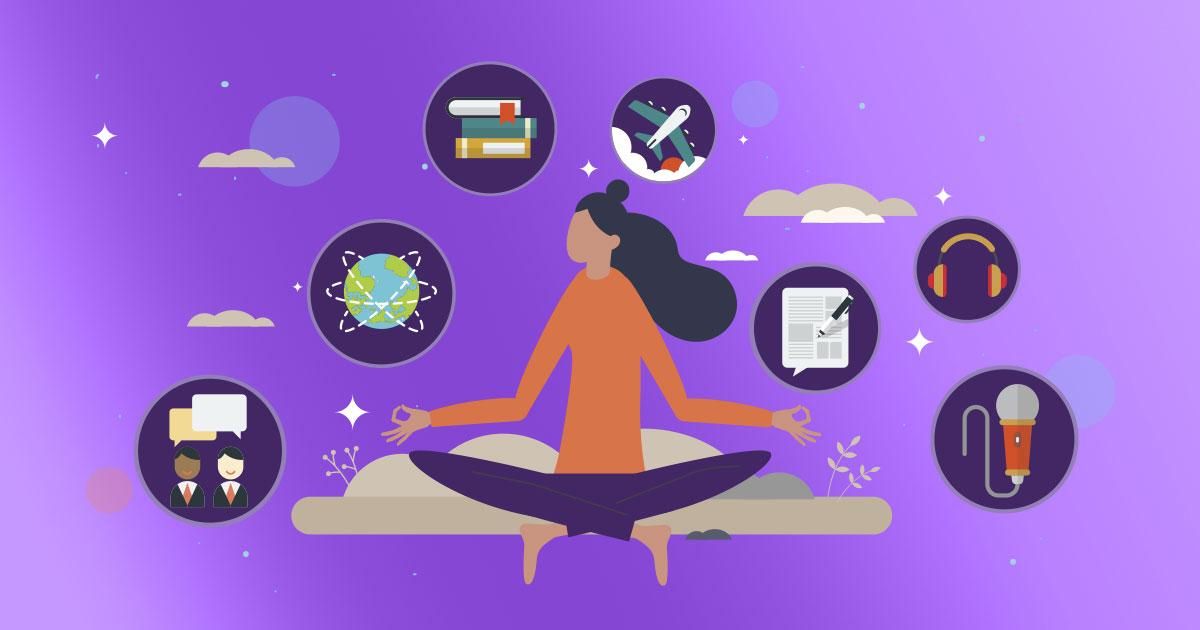
By Tina Dietz, CEO Twin Flames Studios
Twelve years ago, over 80 percent of Americans reported that they held companies highly accountable for promoting diversity, ensuring human rights, and educating employees to take action (ConeInc.com Who’s Responsible?, 2010). More than a decade later, how has that accountability translated? How can we continue to battle unconscious bias in the workplace?
DEI is not a new and trendy idea, nor is it a “nice to have.” A corporate culture that promotes diversity, equity, and inclusion is an expectation-and for good reason. If your company is not diving in and doing the work to cultivate a culture where diversity is welcomed as the norm, you’re missing out. What gets unlocked with diversity is the endless innovation and creativity brought out by your employee’s authentic selves.
The human voice has qualities that transcend demographics. Various vocal features such as the “contagiousness” of laughter, structures and themes in oral storytelling techniques, and the detection of when someone is trustworthy via someone’s voice are hardwired into us as humans. The implementation of internal corporate podcasts allows for the diversity in companies and organizations to flourish, to reinforce and develop company culture and values, and democratize leadership.
But why podcasting? You might be surprised that research shows that audio-only communication can increase team-cohesion and productivity.
With audio-only communication and internal podcasting your organization can:
- Develop better listening skills
- Cultivate an environment to form deeper connections
- Establish a culture of verbal equity
- Decrease bias
- Increase your team’s overall happiness
- Reduce stress levels
- Create psychological safety
Many companies are implementing podcasting as part of their DEI programs. Here are three powerful benefits of internal podcasting to promote and develop diversity and inclusion in the workplace with specific examples:
- Podcasts give ERGs an opportunity to have a voice
Employee-led resource groups (ERG) promote diversity and inclusion by ensuring everyone gets an opportunity to have a voice.
Some great examples include:
- Sodexo Diversity & Inclusion is one of the company’s six strategic imperatives, including their DEI podcast, with 25 percent of the executive bonuses linked to diversity objectives.
- The Lehigh University podcast, featured in PodBean. When asked, “Is there a wider value to the podcast?” This was the response:
“The podcast has allowed staff members’ stories to have greater reach than their normal range might offer. For example, one of the staffers is a role model to, and supportive of, the LGBT+ community at Lehigh. Students and faculty members who otherwise may not know, were made aware of this person's commitment to being an important resource. Another episode featured the story of the university’s performing arts center director. This story served both to highlight the diverse careers and paths to them at Lehigh and also to show people beyond the campus the many functions the university serves in the community,” Hillary Kwiatek.
2. Audio-only format decreases bias
Have you ever gathered with your team only to discover there are some who speak to one another more than others? They tend to seemingly speak one-on-one in meetings leaving several other team members out of the conversation. In other words, they dominate the meeting. As humans, we naturally tend to gravitate to those we like the most, whether intentional or unintentional. In-person and zoom meetings leave room for distractions from non-verbal queues to appearance. DEI in the workplace requires a multifaceted approach. Corporate podcasts decrease benevolent and unintended biases, as well as decrease the malevolent or discriminatory biases. Podcasts allow for us to become better listeners and establish a culture of verbal equity. Decreasing bias bolters company culture and creates new relationships.
- “We show that when interacting partners have audio cues only, the lack of video does not hinder them from communicating these rules but instead helps them to regulate their conversation more smoothly by engaging in more equal exchange of turns and by establishing improved prosodic synchrony. Previous research has focused largely on synchrony regulated by visual cues, such as studies showing that synchrony in facial expressions improves cohesion in collocated teams” (Physiology & Behavior).
3. Internal podcasting promotes psychological safety
Anxiety, panic attacks, and lack of confidence can hinder our ability to speak when all eyes are on us. Zoom and in-person meetings can produce visual distractions and unconscious bias. In audio-only mediums, like podcasting, employees feel psychologically safe from those hindrances. Research shows that eliminating visual distractions and nonverbal cues can help. When we turn off the camera and rely only on audio cues, the conversation flows and improves cohesion in meetings. The ability to identify others’ emotional states by simply listening is a powerful tool that few of us fully access as leaders. Internal podcasting allows us to create that safe space and prioritization of listening.
The added benefit of internal podcasting in regards to reducing stress levels, is the ability of the listener to move while listening. Movement and exercise is important to manage and reduce stress levels, thus assisting in the prevention of or mitigation of anxiety and depression. Podcasting reduces stress levels, creates psychological safety, and improves your team’s overall happiness.
While podcasting as an audio-only format can remove unconscious bias, it can also highlight diverse voices (as we touched on in points one and two).
When companies weave psychological safety and DEI together, employees feel safe to bring their whole selves to work. Having a diverse workforce improves productivity, innovation, creativity, and saves organizations money (Nathan & Lee, 2015).
According to researchers from the University of Iceland, when supervisors actively listened to their employees, employees reported higher dedication and vigor. This correlated to an increase in reciprocal communication, more psychological safety throughout the organization and improved physical and mental health. Taken further, this indicates that when leaders establish an environment where everyone’s voice is heard and people engage in thoughtful participation, we create a climate where we can maximize strengths, address weaknesses and curb burnout.
Valuing diversity leads to psychological safety within organizations, fostering more positive, open-minded, creative, and better-performing employees.
Corporate internal podcasts can increase team-cohesion, creativity, and productivity by championing diversity, equity, and inclusion. The audio-only format of podcasts removes distractions and bias, creates a stress-reduced space for everyone, and provides an efficient method to highlight diverse voices to your entire organization. Click here to learn more about how to use podcasting to promote DEI in your workplace.

Create a Professional and Profitable Audiobook!
The Insiders Guide to Audiobook Production gives you the inside track to create a high-quality and effective audiobook and reach a much larger new audience.
Thank you!
Please check your inbox for your email.
If you don't see anything in a few minutes, please check your spam folder.

Leave a Reply